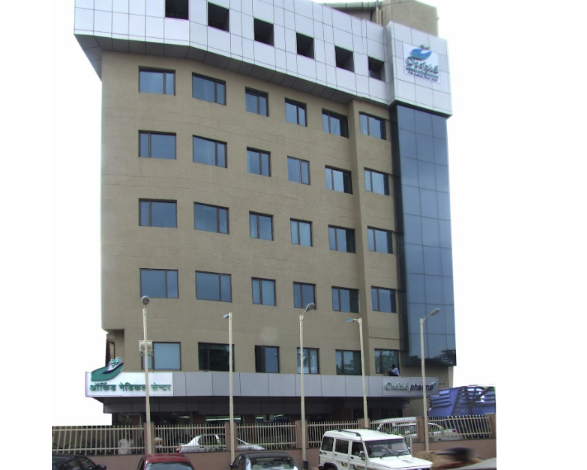How to Find the Best Hospital in Ranchi for Your Healthcare Needs

Choosing where to get treated isn’t as simple as it sounds. Especially when it’s urgent, or worse—uncertain. A hospital visit is rarely planned. It shows up in the middle of a workday, a family dinner, or at 2 a.m. when everything feels quieter and heavier.
That’s why it’s important to figure out what makes a place right for your care—before you’re actually in the middle of needing it.
Now, if you’re searching for a hospital in Ranchi, the options might feel… well, a bit much. Some are well-known, others not so much. Some have big signboards, others are tucked into neighbourhood corners. But beyond the signage, what really matters?
Don’t Just Go by Distance
Sure, the nearest hospital is tempting. It might even be good for a quick check-up or a mild fever. But if something more serious comes up—like a heart issue, complications from diabetes, or internal injuries—you’ll want to be somewhere that has proper support.
Start with these questions:
- Is there a dedicated emergency unit?
- Do they handle critical care 24/7?
- Can they perform imaging or lab tests without sending you outside?
Sometimes, a few extra kilometres could mean better doctors, more reliable equipment, and fewer back-and-forths.
Ask Around, But Keep Your Filters On
It’s common to hear things like “that place is good” or “my cousin went there and got better.” And, okay, that’s a starting point. But one good story—or one bad one—doesn’t give the whole picture.
Instead, gather small details:
- Is the staff responsive or hard to reach?
- How long do tests take to come back?
- Are appointments delayed or fairly on time?
People won’t always volunteer this stuff, but if you ask directly, you might hear things that don’t show up on reviews or websites.
Look Beyond the Reception Area
Hospitals often put effort into how the lobby looks. Clean chairs, polished floors, maybe a help desk with someone smiling behind it. That’s fine—but the real test is elsewhere.
When you walk in, pay attention:
- Are the signs easy to follow?
- Do attendants actually help or just point?
- Is it noisy in places where it should be calm?
You’d be surprised how much a short visit tells you about how a place is run.
See also: How Nutraceuticals Are Reshaping Preventive Healthcare in India
Facilities Should Work—Not Just Exist
It’s one thing for a hospital to list services. It’s another thing to see them working smoothly. Some places claim to have advanced setups, but they refer you outside for even basic procedures.
Let’s say someone needs laparoscopic surgery. It’s minimally invasive, has a quicker recovery, and less strain on the body. But is the equipment up-to-date? Is there a surgeon on-site or only visiting once a week? These things matter.
What You Should Ask, Even If It Feels Awkward
Most people hesitate to ask questions when they’re in pain or feeling anxious. But clarity helps. A lot.
Don’t be shy to ask:
- Who will actually be treating me?
- Are costs explained before admission?
- If I need an ICU or a ventilator, is it handled here or transferred elsewhere?
A decent hospital will answer without dancing around. If they don’t, maybe move on.
It’s Not Just the Doctors
Yes, specialists matter. But the rest of the team often shapes your experience just as much.
Think about the nurses. The people who clean the rooms. The technician who draws blood. The guy at billing who either helps you or keeps saying “wait.”
A well-managed place shows it in small ways. Sheets changed on time. Reports given without chasing. Even the food served to patients tells you whether the hospital treats people like, well, people.
Tech Is Useful—When Used Right
Modern medicine relies a lot on machines. Scanners, monitors, ventilators. But tech is only helpful when it’s actually used—and used properly.
For example, someone coming in with chest pain might need tests run quickly. A strong cardiology department doesn’t just mean someone with a stethoscope. It means ECGs are fast. Reports come back quickly. And follow-ups are explained in plain language.
Small Things You Might Overlook
It’s easy to focus only on doctors and rooms. But there are little things that can quietly make or break your hospital experience:
- Is there parking nearby, especially in emergencies?
- Are medicines available on-site or only through partner pharmacies?
- Do they allow a family member to stay overnight, if needed?
Sometimes it’s the stuff people don’t mention that ends up becoming the most frustrating when you’re already stressed.
What to Do Before You Actually Need It
This might sound odd, but visit the hospital before you fall sick.
Not for a full check-up, just for a sense of the place. Walk in, ask a question or two. Maybe stand quietly near the reception for a few minutes. See how others are being treated—not the celebrities or VIPs, but the regular people.
If something feels off, trust that instinct.
A Final Word
No hospital is perfect. But some try harder than others to do the right thing, even when it’s not flashy or loud. Those are the places worth keeping on speed dial.
The best hospital in Ranchi isn’t always the biggest, or the one with the longest list of departments. It’s the one that answers the phone when you need them most, that treats you like more than a file number, and that doesn’t make you fight for clarity in a time of fear.
Keep that list short. Keep it real. And keep it ready.




